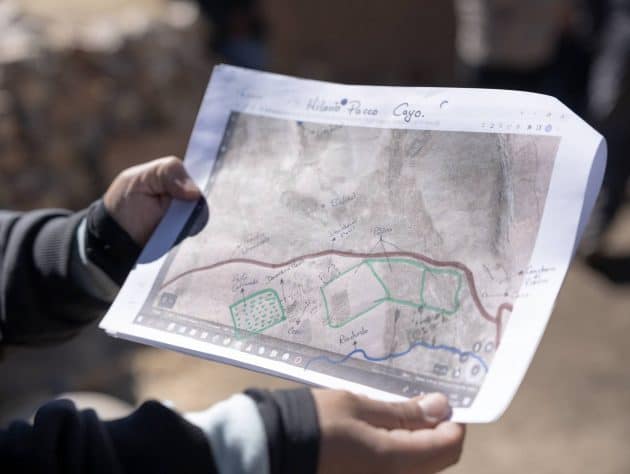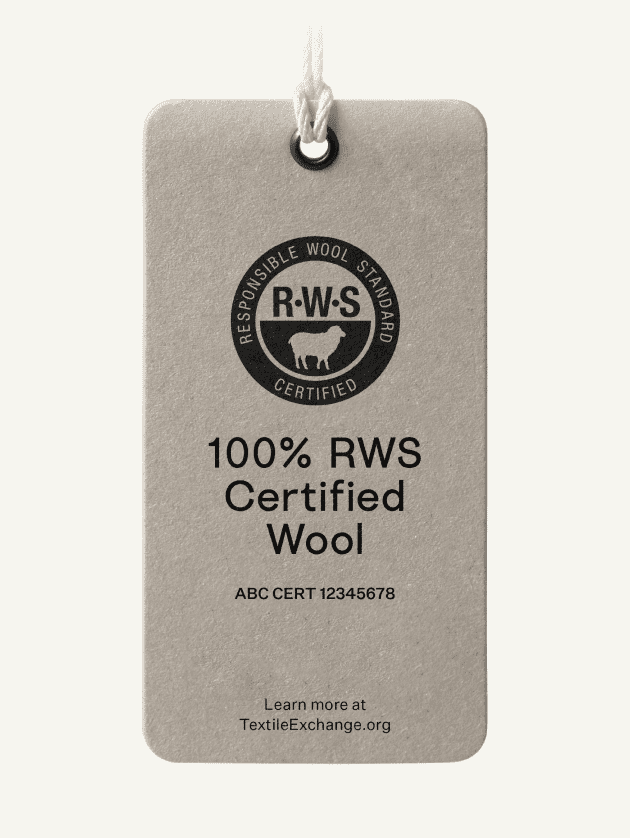Claims and Labeling
Guidance for making credible claims
Building a harmonized standards system for climate and nature
We’re transitioning to the Materials Matter Standard, a voluntary sustainability standard for the production and processing of raw materials.

How it Works
Introducing the Materials Matter Claims and Labeling Policy
Alongside the new standard, we’ve published a new Claims and Labeling Policy, outlining the requirements for using Materials Matter claims and labels.
The Materials Matter Claims and Labeling Policy includes:
- Intentionally designed Materials Matter certification labels that contain the essential information needed to communicate clearly about the certified material in the product.
- Claims language options that are accurate, clear, and consumer-friendly.
- Clear criteria, guidance, and examples for labeling and making claims about how the certified material is produced.
This policy will become effective on December 31, 2026. The mandatory date for when all claims and labels must transition to Materials Matter is June 30, 2029. Further specifics of what the mandatory date means for claim makers will be detailed in the Transition Policy (to be published in February 2026).

Timeline
Transition timeline

CLAIMS COMMUNICATIONS
Communicating about our current standards
The Standards Claims Policy (TE-301-V1.4) outlines the different categories of claims that may be made about our current standards, each of which has defined eligibility requirements and guidelines to follow.
We’ve also recently updated the Standards Claims Policy to align with relevant upcoming legislation, including the EU’s Empowering Consumer Directive (ECD).
To stay aligned with these regulations and with ISEAL requirements, the updated policy becomes mandatory for implementation on September 27, 2026.

COMMITMENT CLAIMS
Key update for claims about your commitment to our standards
In light of upcoming legislation, the updated Standards Claims Policy has removed all commitment claims, including corporate commitments and sourcing/progress claims.
Organizations may continue making these claims as usual until the mandatory implementation date on September 27, 2026.
We are developing an approach to credible verification of sourcing and commitment claims, to be published before the mandatory implementation of the Standards Claim Policy on September 27, 2026.

ASSURED CLAIMS
Claims for certified organizations or products
Assured claims are verified statements that confirm an organization or product has successfully met the requirements of Textile Exchange’s certification process.
- Only certified companies can make claims about the certification status of their organization.
- “Product-related claims” may be made on final products being sold to consumers (B2C) or products sold between businesses in the supply chain (B2B), such as a yarn maker selling their wool yarns to other companies.
- Product-related claims can appear both on product (hang tag, product label) or off the product (in a catalog or ecommerce description).
- Claims in this category are not approved by Textile Exchange. They must be submitted to and approved by a certified organization’s certification body. See the approval process below for more details.
Key update for claims for certified organizations or products
The updated Standards Claims Policy includes new labeling recommendations to account for legislation such as the ECD. One of these recommendations relates to the use of informational statements alongside “responsible” claims to ensure clarity. This applies to Responsible Down Standard (RDS), Responsible Wool Standard (RWS), Responsible Mohair Standard (RMS), and Responsible Alpaca Standard (RAS).

INFORMATIONAL STATEMENTS
Ready-to-use messages that describe the standard
Informational statements are ready-to-use messages that describe our standards. They provide additional context for all claim categories in the Standards Claims Policy.
PRODUCT LABELING
What to include

The written content of the claim may be listed out or summarized in a sentence such as “This product contains 50% RWS certified wool, certified by ABC Cert 12345678.” You can refer to the Standards Claims Policy for more information.
APPROVAL PROCESS
How to make a product-related claim

Frequently Asked Questions
If you have a question not answered here, get in touch with us directly, and we’ll be happy to answer it for you.
Can someone from Textile Exchange approve my standard claim or artwork?
No. Only certification bodies are authorized to approve your use of product-related claims or labels. They have in-depth knowledge of our Standards Claims Policy and Standards Logo Use Specifications and will use them to approve your company’s logo use or claim, as well as verify the certification of your product.
Can you send me a standard logo?
No. Logos have to be obtained through the certification body that you (or your supplier) are working with for certification. We’ll only issue logos for specific uses by media or others who want to promote our standards.